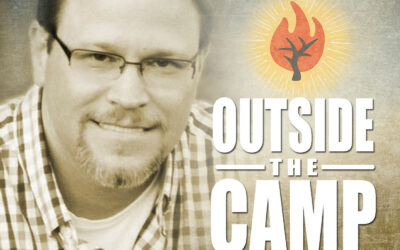As people lose faith in these institutions and the people who lead them they are tempted to dismiss the idea of leadership altogether – particularly when the only leadership they have ever experienced has been an autocratic, dictatorial kind of leadership. When it comes to spiritual leadership, this causes many believers to say, “Who needs leaders? We all have the Holy Spirit. Let’s just be led of the Lord!”
This sounds perfectly acceptable in theory; but in actual practice, we see that God still raises up and uses spiritual leadership to bring His people where He wants them to be. He certainly could have just led everyone directly by His Spirit. But the fact of the matter is: only the spiritual can be led by the Spirit. Having the Spirit does not automatically mean we are governed by that Spirit and able to be led by that Spirit. The Corinthians are a good example of Spirit-filled people who were still carnal, who were gifted and knowledgeable enough to teach others, but needed someone to teach them again.
God does not command newborn babies to behave as spiritually mature adults. He recognizes our weaknesses and accommodates them. Jesus appointed twelve apostles: first to be with Him as disciples, and later to provide spiritual leadership in the Early Ekklesia. These apostles in turn were led by the Holy Spirit to appoint elders in each place, and these elders (“older ones”) provided spiritual leadership to each community of believers.
Spiritual leadership (as God intended) is Christ-centered, Spirit-led, and Scripturally-based. It serves the Body of Christ and leads people into a spiritually mature walk with God. When leadership gets its power from the organization or institution instead of the Holy Spirit, and when it lords over other people instead of serving them, then the Body of Christ suffers and people rightly question the role of leadership in the Body of Christ. The kind of leadership that brings people into bondage through fear is not the kind of leadership that Jesus intended and must be repudiated.
Keeping that in mind, the solution to the problem of bad leadership is not to remove the idea of leadership altogether. Let us remove (or refuse to follow) bad leadership, but let us not imagine that we have outgrown the need for spiritual leadership altogether. Both sacred and secular history teaches us that having no leadership is just as bad, and in some ways worse, than having bad leadership.
Leadership Lessons From Judges
I’m a big believer that life is too short just to learn from your own mistakes; you need to learn from the mistakes of others. So when I am confronted with a situation, my first question is, “Who else has faced a similar situation, and what can I learn from it?”
This crisis of leadership leads me to the Book of Judges, because our condition today is very similar to the situation Israel faced shortly after entering the Promised Land. Moses provided strong spiritual and moral leadership, bringing the people out of Egypt and establishing them as a nation. His successor, Joshua, likewise provided leadership to the nation as it entered the land of Canaan and began to establish their national borders.
From there, the Book of Judges records a rather predictable pattern. The leader would die, the people would turn away from God, and God would turn them over to their enemies. After suffering under their enemies for a period of time, the people would cry out to God for deliverance, and God would answer them by raising up someone to lead them. After their enemies were defeated, the people would live in peace until that leader died. Then a new generation would come, the people would turn away from God, and the vicious cycle would repeat itself.
I would like you to note several important principles that have application to you and me.
1. God did nothing until the people cried out to Him in prayer. When the people turned away from God, God turned them over to their enemies, essentially allowing them to reap the fruit of their own ways. The shortest period of rebellion was seven years, but most of the rebellions lasted around twenty years. At some point, the people had enough and cried out to the Lord, kind of like the prodigal son coming to his senses and returning to his father. But the important thing is to see that God took no action on His own. He did not lift a finger to help them until they cried out to Him in prayer. This underscores the importance of prayer for you and me. Prayer can shorten judgment, and prayerlessness can lengthen judgment. If we just sit back and wait, believing that eventually God is going to do something, or if we sit back and wait for someone else to do something, nothing will happen. We will continue to suffer needlessly until we get serious about calling out to God in prayer for our family, our community, our nation, and for the Body of Christ.
2. God always answered the people by raising up leaders to lead them. God did not lead the people directly, and God did not personally intervene in the situation they had created. Instead, God raised up a deliverer – Gideon, Sampson, and others – to provide them with leadership. It is also worth mentioning that these leaders were far from perfect, but God still raised them up and used them to lead the people to victory. It is unrealistic to demand that spiritual leaders be perfect. We see the imperfections of Peter, Paul, John, Moses, and David and observe that God nevertheless used them and blessed them to be a blessing to others in spite of their shortcomings. But there is not a single instance in Scripture were God directed large groups of people without raising up leaders to lead them. Spiritual leadership, properly understood and accepted, is an answer to prayer and a blessing to the Body of Christ. This is why Deborah sang, “When leaders lead in Israel, when the people willingly offer themselves, Bless the LORD!” (Judges 5:2). She said this after persuading a reluctant man named Barak to get up and lead. It is almost as if she is saying, “Hallelujah! We finally have a leader!” Consider the alternative: without the spiritual leadership of Moses, the people would have returned to Egypt and a life of slavery. Without the spiritual leadership of Paul and others to preach the Gospel to the Gentiles, Peter and the Early Ekklesia would have limited their outreach to Jews only. The fate of the people tends to rest on the quality of the spiritual leadership, for better or worse.
3. Spiritual leaders must teach and equip both the current and the next generation. The whole generation of people who entered the Promised Land with Joshua served God only as long as Joshua lived. Scripture tells us that after Joshua and that whole generation died, “Another generation arose after them who did not know the Lord nor the work which He had done for Israel” (Judges 2:10). Perhaps in the busy-ness of conquering new territory the elders failed to pass on the spiritual and moral lessons to the next generation. Whatever the reason, the torch failed to pass, and the next generation drifted away from God. I should not have to point out that the same thing is happening today, as each successive generation becomes less principled, more detached from Scriptural values, and more permissive. Similarly, the Book of Judges records times of peace usually lasting 40 years, and occasionally, 80 years. These round numbers roughly suggest a generational component: so long as spiritual leadership was in place to train the next generation, peace continued during that generation. Once spiritual leadership failed to teach and equip the next generation, “another generation” would come along who had no spiritual or moral foundation, and the nation would collapse again.
Implications For Today
Spiritual leaders are desperately needed today for the same reasons. One of Paul’s final instructions to Timothy was to ensure the continuity of a Christ-centered faith by making sure it would be handed down to the next generation: “Teach these things to faithful people who can teach others” (2 Timothy 2:2). Teaching students is fine and good, but we also need to be teaching teachers so they can teach others. I believe this is an important aspect of discipleship that is often overlooked. Our mission is not only to teach and equip people for today, but to teach and equip people for tomorrow, to ensure that a Christ-centered faith is preserved and handed down to successive generations, until the Lord returns.
The Book of Judges ends with an ominous statement. After recording a particularly grotesque moral failure, it simply says: “In those days there was no king in Israel; everyone did what was right in his own eyes” (Judges 21:25). I am not suggesting that we need a “king” to lead us, other than the King of Kings; but I am suggesting that this King raises up men and women to provide spiritual leadership. In the absence of spiritual leadership, people will drift and will do whatever seems right in their own eyes. The problem with that, of course, is everyone has their own subjective definition of what is “right” for them. Without objective spiritual, Biblical and moral standards, and without leadership to inspire, motivate, and remind people of those standards, people will make up their own rules – often with disastrous consequences.
That is why I am praying for God to raise up 1,000,000 spiritual leaders who are Christ-centered, Spirit-led, and Scripturally-based. These leaders need not have any official title or connection with an organization, but will simply have a heart for the Body of Christ and will be moved by the Spirit of God to serve people right where they are, starting with the most obvious place: in their own home and in their own community.
Who needs that kind of spiritual leadership? We all do! If you agree, please join together with me in agreement for God to raise up a new generation of servant leaders all over the world. And when the leaders lead, and the people willingly offer themselves, we can all bless the Lord together. Amen.










